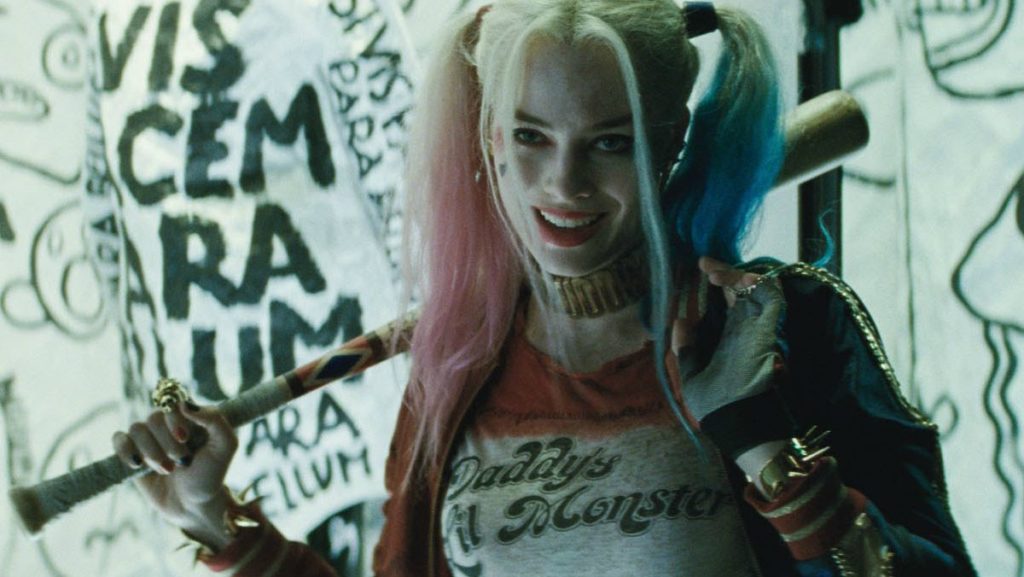An intelligence operative named Amanda Waller (Viola Davis) gives a sinister look to the general across the table and silently slides him a manila folder that reads, “TOP SECRET.” The envelope contains the names of the antiheroes whom the government plans to utilize for its dirty work: Harley Quinn (Margot Robbie), the Joker’s crazy girlfriend; Deadshot (Will Smith), a murderous assassin; Captain Boomerang (Jai Courtney), who just slaps people with his boomerang; El Diablo (Jay Hernandez), a master of fire; Killer Croc (Adewale Akinnuoye-Agbaje), a reptile man; and Enchantress (Cara Delevingne), an archeologist whose body was possessed by a witch. Waller has no difficulty rambling on about each one of their stories and taking up a quarter of the film, despite leaving out two additional members of the Suicide Squad: Katana (Karen Fukuhara) and Slipknot (Adam Beach).
Audience members anticipated an action film with killer visual effects, but the first scene presages the rest of the movie: an entire film devoted to backstories and an irrelevant cast of supervillains.
One critical plot point that fails is the development of Harley’s character: the Joker’s girlfriend and the protagonist in the film. Though the relationship between Harley and the Joker is altered in the film — avoiding the abusive relationship from the comics — the relationship lacks depth entirely. In the comics, the antihero grows into a fearless, independent woman after experiencing an abusive relationship with the Joker. It is through this negativity that she shines, becoming an individualistic clown who no longer takes abuse from men. Instead of following the comics, Warner Bros. takes a safer approach by showcasing the Joker as an affectionate lover, leaving little space for Harley to come into her own. In this manner, the film is at a standstill — improving the relationship between the two removes any possibility for Harley’s personal success.
Still, the abusive dynamic of the pair is present. The Joker alters Harley to his liking, restricting her from behaving in certain ways, turning her into the psychotic princess he demands. Sure, the Joker saves Harley’s life when she falls into a vat of acid, but he put her in that situation to begin with. This combination of attempted romance with hints of abuse disappointed comic fans due to its lack of accuracy and let down movie buffs because of its lack of character development.
Even the title “Suicide Squad” seems inappropriate after viewing the film. The characters only become a “squad” in the final 40 minutes of the film. The film focuses mainly on Harley’s backstory, giving little time for other characters on screen. The amount of screen time Harley receives — often decked out in hypersexualized outfits — is gargantuan compared to that of El Diablo, whose pacifistic beliefs could create a far more interesting plot. As for Waller, she simply isn’t on screen nearly as much as expected, even though she forms the squad.
Not to mention, Jared Leto’s appropriately criticized use of method acting for the film was absurd. Leto, who is known for films like “Fight Club” and “Mr. Nobody,” has used method acting in the past, like when he starved himself to enter the mindset of heroin addict Harry Goldfarb in “Requiem for a Dream.” However, Leto’s commitment to the Joker was one of the most mentally altering of all of his roles. In an interview with Rolling Stone, Leto confessed he had watched videos of murders online to get into the mindset of the villain. Fellow actors on set admitted Leto sent dead animals to the cast for the same reason.
His manic behavior obviously seduced the audience enough for “Suicide Squad” to reach major financial goals, securing $179.1 million domestically during its first week.
The concept of the Suicide Squad — a group of supervillains who are signed up to do the government’s dirty work — is strong. But when a director subtracts the action, emotion and comic relief, and replaces it with backstories and unaddressed abusive relationships, it fails.




















